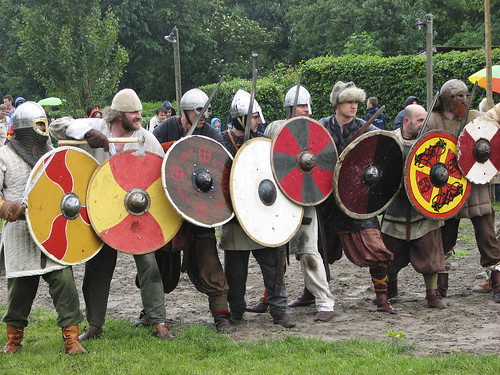Welcome to our latest installment of Word Buzz Wednesday, in which we round up five buzzworthy words. This week: red hot chile peppers; smartwatches in the night, exchanging glances; them’s fightin’ genes.
chemesthetic
“Capsaicin, unlike other compounds found in food, is a chemesthetic (a chemical that activates receptors associated with pain and touch) so it produces a burning sensation, rather than a taste or smell.”
Leslie Stephens, “All About Chiles,” Food52, February 25, 2015
Chemesthetics don’t just result in pain but also, for example, the cooling feeling of minty mouthwash and the stinging of carbonated drinks.
duang
“Jackie Chan might still be popular in China, but nowadays the pro-Beijing actor is as well-known as fodder for jokes as he is for his gritty martial arts and slapstick humor on screen. His latest contribution to the country’s mass culture and entertainment: ‘duang.’”
Didi Tang, “‘Duang!’ Chinese poke fun at Jackie Chan with nonsense word,” AP, March 5, 2015
The Chinese word duang, says AP, means something like “ta-da!” or else “special effects.” In a 2004 shampoo commercial, Chan claimed no ‘duang’ was used “to make his hair look blacker, shinier and softer,” which authorities later deemed false advertising.
Duang is an example of onomatopoeia.
glances
“Apple has not yet trademarked the term, but you will hear a lot about ‘glances’ and ‘glanceable content’ in the coming days as Applespeak begins its migration into the vernacular.”
Stephen Hutcheon, “Apple Watch launch 2015: Attention deficit is coming on an industrial scale,” The Sydney Morning Herald, March 11, 2015
Apple defines a glance as a “a browsable collection of timely and contextually relevant moments from the wearer’s favorite apps,” says The Sydney Morning Herald. In other words, a glance is glancing at your watch to check the weather or a stock price.
There will be two types of glances, the Long Look, which you can scroll, and the Short Look, which you can’t.
The word glance comes from the Old French glacier, “to slip, make slippery.”
Munchausen by proxy by Internet
“Some argue that Spears was exhibiting an even newer form of Munchausen than had previously been identified: ‘Munchausen by proxy by Internet.’”
Amanda Hess, “Sick of the Internet,” Slate, March 9, 2015
Münchausen syndrome is a psychiatric disorder in which the afflicted pretend to be ill to gain attention and sympathy. In Münchausen syndrome by proxy a parent or other adult caregiver exaggerates or induces illness in a child to gain attention.
In 2000 psychiatrist Marc Feldman coined Munchausen by Internet, a form of Munchausen syndrome in which people post about feigned illnesses online. Now, in light of a woman who’s accused of slowly poisoning her child with salt and documenting his “illness” on Twitter, some are suggesting yet another variation: Munchausen by proxy by Internet.
The disorder and its variations are named after Baron Münchhausen, a fictional character in German literature loosely based on real-life baron, Hieronymus Karl Friedrich, Freiherr von Münchhausen, who had a habit of telling tall tales.
warrior gene
“About 30% of men have this so-called warrior gene, but whether the gene is triggered or not depends crucially on what happens to you in childhood.”
“Are murderers born or made?” BBC News, March 9, 2015
The warrior gene refers to the absence or a variant of a gene that produces the enzyme, MAOA, “which regulates the levels of neurotransmitters involved in impulse control,” says BBC News.
Those without this gene or with the “low-activity” variant are predisposed to violence, according to a 1993 study of a Dutch family. In the family, all the men had a history of violence and were also all missing this gene.
However, just because you’re missing this gene doesn’t mean you’re necessarily violent. A University of California professor who discovered “a surprisingly large number of murderers in his family tree,” had himself genetically tested and found “he had an awful lot of genes that have been linked to violent psychopathic behaviour,” although he himself hasn’t displayed such tendencies.
He chalks it up to his happy childhood and suggests that “a genetic tendency violence” plus an abusive childhood is the deadly combination.
[Photo via Flickr: “Viking warriors ready for the fight,” CC BY 2.0 by Hans Splinter]
